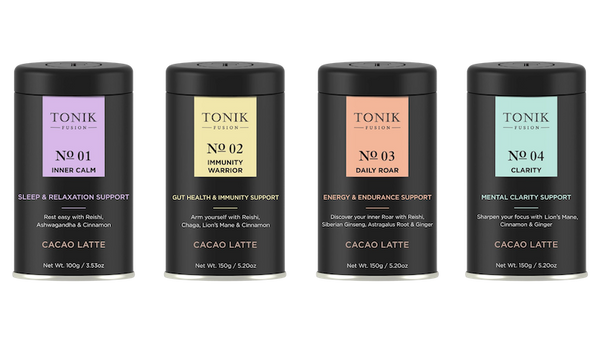Can Chaga Mushroom Help Nerve Damage?
Several years ago, I encountered a challenging period due to a skiing accident that left me with minor nerve damage in my leg. During my recovery, I delved into various natural remedies to complement my physical therapy. That's when I first came across Chaga mushrooms.
Known for their healing properties, these mushrooms sparked my curiosity, leading me to explore whether they could play a role in nerve health. Today, we'll explore the potential benefits of Chaga for nerve damage, drawing on both research and personal insights.
Chaga mushroom, often consumed in teas or supplements, has been researched for its potential neuroprotective effects. Studies suggest that Chaga might help in nerve damage recovery due to its antioxidants and its possible influence on Nerve Growth Factor (NGF). While more research is needed, early indications show promise for Chaga as a natural aid in nerve health.
What Is Chaga?

Chaga (Inonotus obliquus) grows primarily on birch trees in cold climates. It's not just any mushroom—it's a hardened, blackened, crusty formation that almost looks like a clump of dirt at first glance. Historically, Chaga has been used in folk medicine across Russia and Northern Europe for centuries. Rich in antioxidants and packed with compounds such as betulinic acid, Chaga has been studied for various health effects, including its potential to support immune health and possibly, nerve regeneration.
How Does Chaga Affect Nerve Health?
Chaga mushroom may contribute to nerve health through its potent antioxidant properties, which help mitigate oxidative stress, a common catalyst for nerve damage. Beyond combating oxidative damage, Chaga is also studied for its potential to enhance Nerve Growth Factor (NGF), a vital protein for the survival and growth of neurons. The dual action of antioxidants and NGF stimulation could support both the prevention and repair of nerve damage, offering a holistic approach to neuroprotection.
- Antioxidants: Chaga contains a high concentration of melanin and superoxide dismutase, powerful antioxidants that protect cells from oxidative damage and inflammation. This protection is crucial, as oxidative stress can lead to cellular damage and exacerbate nerve degeneration, thereby impacting nerve function.
- Nerve Growth Factor (NGF): Chaga's potential to elevate NGF levels is noteworthy, as NGF is essential for the health and maintenance of neurons. Increasing NGF can significantly improve the repair processes of damaged nerve cells and enhance overall neurological functions, offering potential relief for neuropathic pain and aiding recovery in conditions that affect nerve health.
Can Chaga Help with Other Types of Nerve-Related Conditions?

Chaga mushroom is being explored not just for nerve damage repair but also for its potential benefits in treating other nerve-related conditions such as multiple sclerosis (MS) and diabetic neuropathy. Here's how Chaga could be beneficial:
- Multiple Sclerosis (MS): Chaga's immune-modulating properties may help manage the autoimmune aspects of MS, moderating the immune system's attack on nerve coverings. It can also reduce inflammation and oxidative stress, which are critical factors in the progression of MS.
- Diabetic Neuropathy: This condition involves nerve damage due to high blood sugar levels, and Chaga's anti-inflammatory effects can be crucial in managing associated symptoms. By improving immune response and reducing inflammation, Chaga might help alleviate pain and improve nerve function in diabetic patients.
How Can You Incorporate Chaga into Your Health Regimen?
Chaga is versatile and can be included in your daily health routine in various forms such as teas, powders, and tinctures, each offering unique benefits. For beginners, integrating Chaga through supplements can be particularly convenient and effective. For example, Tonik Fusion's No. 02 Immunity Warrior Cacao Latte not only contains Chaga but also combines other powerful adaptogenic mushrooms like Lion’s Mane and Reishi, enhancing its health benefits.

This blend provides a simple and enjoyable way to incorporate Chaga into your diet, supporting overall wellness and nerve health.
FAQs about Chaga and Nerve Damage
How Long Does It Take to See Effects from Chaga on Nerve Damage?
The effects of Chaga on nerve damage may vary, but some users report feeling benefits within a few weeks of regular consumption, though optimal results generally require consistent use over a longer period.
Can Chaga Mushroom Be Used Alongside Conventional Treatments for Nerve Damage?
Chaga can often be used in conjunction with conventional treatments, but it's important to consult a healthcare provider to ensure there are no interactions with other medications.
Can Chaga Mushroom Prevent Nerve Damage in Addition to Treating It?
Chaga's antioxidant and anti-inflammatory properties may help in preventing nerve damage by protecting nerve cells from oxidative stress and inflammation.
Closing Thoughts
While we're still uncovering all the ways Chaga can influence health, its potential in aiding nerve damage recovery is an exciting prospect. Whether you're a health enthusiast or someone dealing with nerve-related issues, Chaga could be worth considering. For those interested in exploring the benefits of adaptogenic mushrooms, visit our shop to discover our range of cacao latte blends.
Don't forget to take our quiz to find out which blend best suits your goals and lifestyle. With a holistic approach and ongoing research, Chaga may soon become a staple in natural health regimens focused on nerve health and beyond.